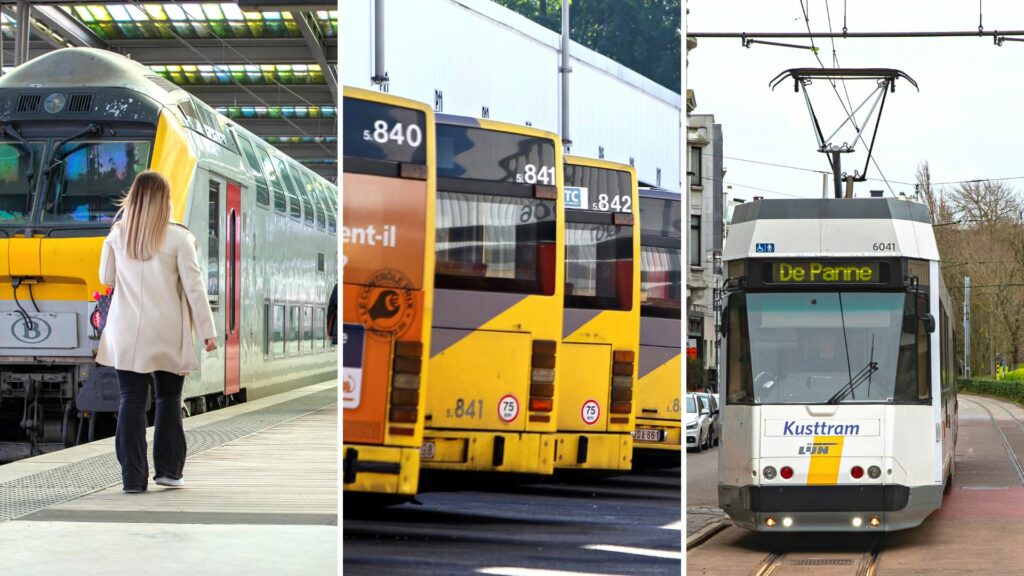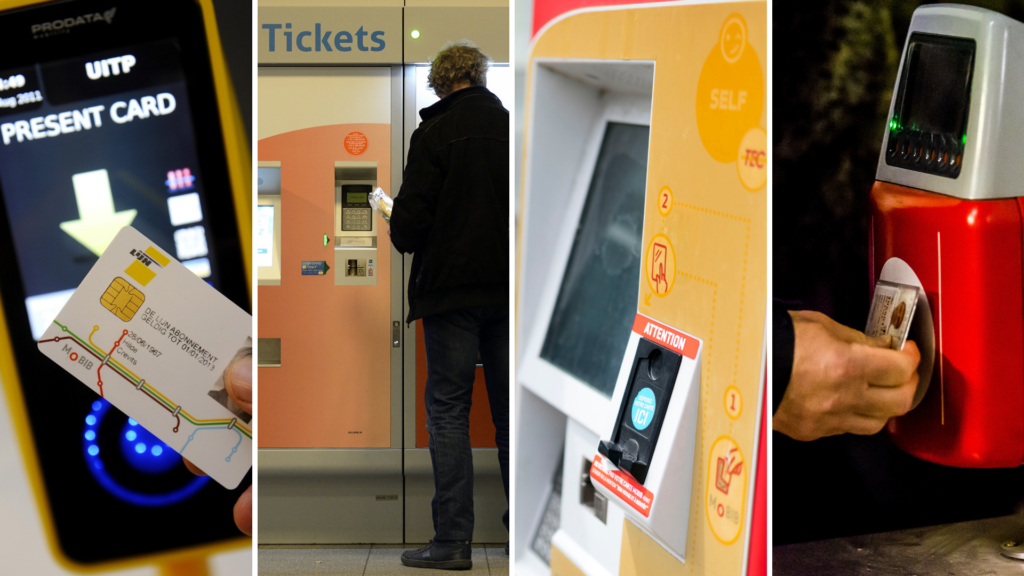Though a small landmass, Belgium is brimming with cultural, linguistic, and practical diversity. The country's regional peculiarities are frequently viewed through the lens of language, with the identity of Flanders and Wallonia in particular defined by their political difference rather than social similarities.
But as well as the contrasting opinions and local pride, Belgium is marked by a collection of transport networks that are specific to the regions, making the invisible administrative boundaries quite noticeable to those trying to literally navigate the country. Whilst a national rail provider connects Belgium's towns, less frequented destinations rely on provincial networks.
This becomes problematic when crossing between regions as passengers would need to purchase a number of tickets for different operators. Even a relatively short journey can become a hassle which some fear is undermining efforts to promote alternative transport methods than the car.
The solution? A "combi-ticket" could allow for travel across all networks, eliminating any cost barrier to reaching your destination. The idea will be discussed by the Federal Government and for €7 a pop would surely be a hit with commuters and day-trippers, with proponents quick to point out the potential boon for Belgium's tourism.
Much of what makes the country a constant source of fascination has to be seen in the flesh to be appreciated. Belgium is a land rich with heritage and history; as well as reading all about it, this could be your ticket to see it.
Sounds sensible right? Let @Orlando_tbt know.
Belgium in Brief is a free daily roundup of the top stories to get you through your coffee break conversations. To receive it straight to your inbox every day, sign up below:
1. Russian 'ghost ships' scout locations for sabotage in North Sea
Russia is seeking to sabotage communication cables and offshore wind farms in the North Sea, a new investigation by Scandinavian public broadcasters DR (Denmark), NRK (Norway), SVT (Sweden), and Yle (Finland) shows. Read more.
2. Government considers 'combi-ticket' for all public transport in all regions
With four different operators managing various modes of public transport in Belgium, travelling from one point to another can become complex and expensive. A so-called "combi-ticket" could solve the problem. Read more.
3. Abortion rights: Government takes first step towards consensus
Belgium's "Vivaldi" government coalition parties are trying to reach a consensus to revise the abortion law, following an expert report on abortion which was presented to the Federal Parliament on Tuesday. Read more.
4. Stricter EU climate laws: Households will soon pay for CO2 emissions
From 2027, households will also have to pay for their CO2 emissions from traffic and heating buildings, the European Parliament agreed in its 'Fit for 55' package of environmental measures. Read more.
5. Brussels takes steps to make city more child-friendly
Brussels is Belgium's youngest region, but this is not always reflected in its policies and design. A conference hosted by the region will see experts discuss this urban challenge in a bid to make the capital more child-friendly. Read more.
6. Anti-Semitic Belgian registration: N-VA calls for power to withdraw racist licence plates
As some personalised licence plates with anti-Semetic and Nazi references are making it past the censor of Belgium’s Department of Vehicles Registration (DIV), a proposal has been tabled to allow authorities to withdraw these plates. Read more.
7. Hidden Belgium: Hallerbos
The woods known as the Hallebos to the east of Halle have become famous for the blue flowers that flourish on the wooded slopes. Up until a few years ago, the bluebell woods were only known to locals. But then people began to post photos of ‘The Blue Forest’ on Instagram. And the Hallebos suddenly became mobbed. Read more.


